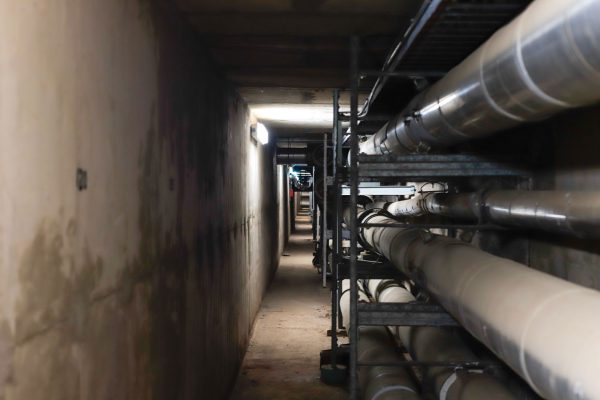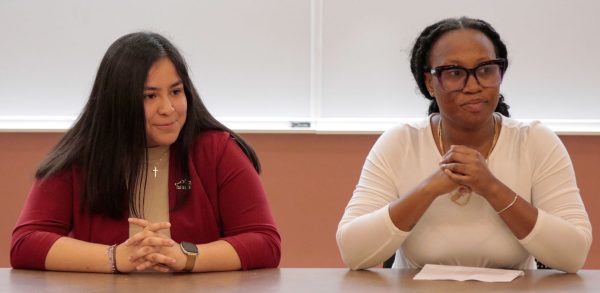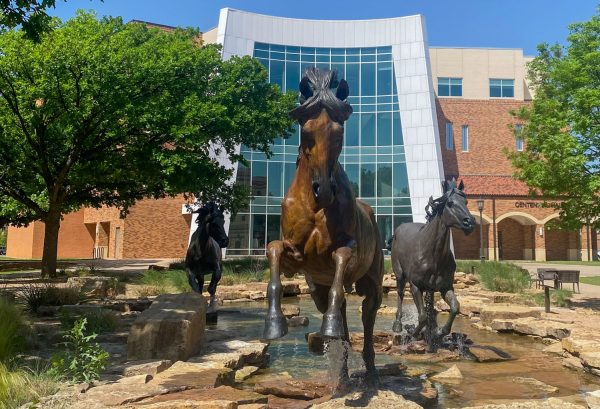Faculty to visit with legislators Feb. 15
Every other year in Texas, state legislators arrive in Austin for the biannual session. They’ll pass dozens of resolutions. They’ll review hundreds of bills. The resolutions and bills may change the face of higher education, including at MSU. To help keep college faculty and staff informed about upcoming issues, The Texas Association of College Teachers hosts a Legislative Day early in the session.
“We as staff make arrangements with legislative offices. At the beginning of sessions we go over our legislative agenda, then we divide into groups so we can cover more offices. We then make those visits and get back together to share notes and then we as staff go over legislative questions,” Chuck Hempstead, TACT executive director, said.
The TACT Legislative Day allows Texas faculty members to talk with legislators about the issues that may affect them. Debbie Barrow, director of board and government relations, said she had never attended the event, but still provided some insight on the process.
“They [TACT] will visit with key legislators and voice their opinions. [T]hey get faculty to go around and talk to legislatures about issues that affect them,” Barrow said.
TACT lists the five main issues the TACT officials will be fighting for on behalf of the Texas faculty.
“Much of it is the same as what we all ask for. So, Dr. Shipley’s getting ready to testify next Tuesday in Austin and she’ll be talking about some of those same issues,” Barrow said.
Public Education Funding
The big thing on the agenda is public education funding, to support increased investments to increase the number of college-ready freshman prepared to prosper in higher education. The House recently released its draft budget for the year, which included an additional $7 billion towards funding for public education. Hempstead clarified how he thought this additional funding would affect funding for higher education as well.
“I’m concerned that when public education does well, higher education usually does not. It’s like a teeter-totter effect,” Hempstead said.
On the other hand, Leia De La Garza, MSU student regent, did not see any issue with the additional public education funding.
“I would say that the House adding $7 billion is a great investment to public education. As long as the money is allocated for the projects outlined in the legislative agenda, I don’t see how there could be any obvious negative repercussions towards higher education,” De La Garza said.
Higher Education Funding
Higher education funding is also on the agenda. However, due to the increased funding towards public education, sources believe this will result in no increased funding for higher education.
“They won’t address higher education funding at all, the last I’ve seen. What I’m hearing is that they’re wanting to fix teacher salaries, that is a major topic for them. By spending that much money, theres no money that’s gonna go towards higher education,” Matthew Capps, dean of the department of education and TACT director-at-large, said.
Capps also stated how he thought the lack of increased higher education funding would affect MSU specifically.
“I don’t think that it will have a negative affect. I don’t think they’re gonna come and say you have to give us money. For MSU, we’ve already asked for money for a new building, but I don’t think we’re gonna be in line anytime soon to get funding for that. As far as the percent of support that comes from tuition and fees and things like that, I don’t see that ever going back up. Maybe five or six years ago they asked us to send money back to the state once we got our allotment. I don’t think that’s gonna happen again, but we’re for sure not gonna get more than we did.” Capps said.
Because of the additional funding toward public education, the budget for higher education isn’t expected to change much.
“From my understanding the draft budget is about flat overall. I have not looked at anything specifically for MSU however,” Hempstead said.
Capps provided some additional insight on how funding at MSU has changed over the years and how we compare to other states.
“Twenty years ago MSU was primarily 80 percent funded by the state and now the last time I looked we’re about 17 percent. In comparison to other states, I sometimes think we’re in bad shape, but it’s a lot worse than a lot of other places. Penn State for example, last time I looked they were at 6 percent state funded so nearly the entire university runs off of tuition and fees,” Capps said.
Capps, however, said we’re better off than other states.
“Within the state, I would say we’re as well as everyone else. Compared to other states we’re a whole lot better off. In Colorado, the projection is to completely cut off state funding for universities. They’ll still be state universities, it’s just that they’re not gonna put any money into them so they expect the institutions to fund themselves,” Capps said.
Hazelwood Legacy Program
Another issue on the legislative agenda is the Hazelwood Legacy Program, with the goal to get the growing unfunded mandate fully funded or reconsidered.
“We want it fully funded by legislature or limited by the program. Tuition paying students have their tuition costs increased to fund that program. Part of the Hazelwood that we might question is the Legacy Program, in that if the veterans do not use their benefits if may be passed onto dependents. The figure I read is that 80 percent of benefits is being used by dependents and we wonder if that is too expensive. The best of both worlds is for legislative to fund it fully, but they only provide a fraction of the cost,” Hempstead said.
De La Garza also showed support toward getting the program fully funded, but believed the program shouldn’t be retired if it remains unfunded.
“The Hazelwood Legacy Program should definitely be fully funded by the state. Increasing costs for students that don’t have the option of using this program isn’t necessarily fair. It shouldn’t be defunded or retired at all, as it’s a great asset for plenty of students who might not otherwise be able to attend college,” De La Garza said.
Freedom of Expression
Also on the legislative agenda is freedom of expression, stating that higher education should be proactive in encouraging safe opinion-sharing among all of its constituents.
“We believe higher education is the place of free expansion in exchange of controversial ideas. We want to make sure that is obtained and freedom of expression is assured,” Hempstead said.
Hempstead also mentioned the many acts of violence that have occurred on college campuses recently. De La Garza was able to elaborate on this while expressing her thoughts on freedom of expression.
“Universities do have the ability to censor movements and protests that take place on campus, and for good reason. There are plenty of examples of protests getting violent or just be inappropriate right from the start. As long as there are precautions in place to make protests a safe environment, there should be plenty held. Freedom of expression is a great thing, but it does allow for hate to be spread across campuses,” De La Garza said.
Access to Education
The last issue on the legislative agenda is access to education for all residents in the state of Texas, with the goal to show more support for the Deferred Action for Childhood Arrivals for all residents of Texas be provided the opportunity to further their education.
“It may say we believe the DACA program in which college students are expected to participate in higher education should continue to benefit. The state benefits greatly from more people participating than fewer,” Hempstead said.
De La Garza also supported this goal to show increased support for the DACA program.
“Access to education should be available to all residents in Texas and programs like DACA should receive more support. We should want residents to be educated and should support that goal through all means necessary,” De La Garza said.











